In a year where Carbery celebrated its 50th year in production, the west Cork based co-op, reported a solid financial performance for 2018. Operating profits were up 4.5% to €32.4m while turnover increased 1.5% to €423.5m. Volume growth offset weaker dairy prices during the year. Operating margins were a healthy 7.7%, while earnings (EBITDA) were up 5.2% to €43.9m. Profit before tax amounted to €25.1m, which is up €1m (+4%) on the prior year.
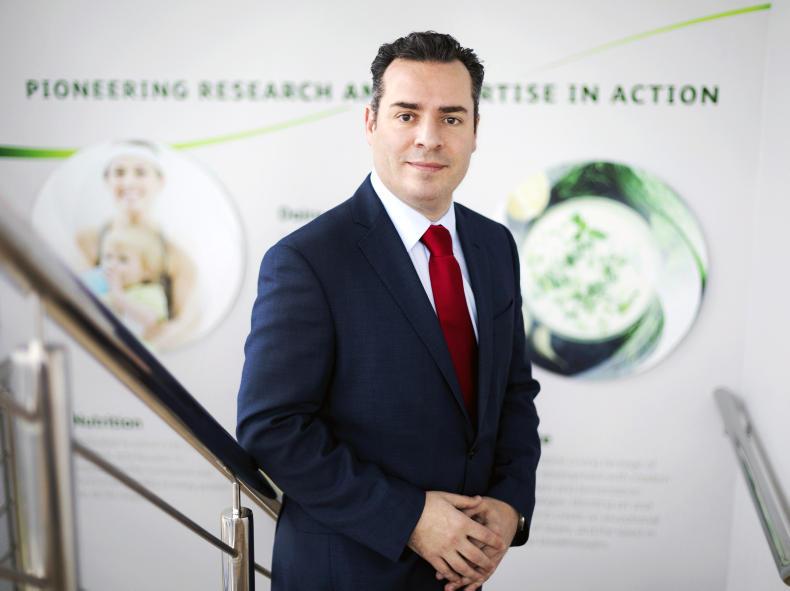
Carbery chief executive Jason Hawkins.
These results are after Carbery declared a €4.3m bonus based on 2018 milk supply, which it set aside for a stability fund to be used to support future payments at times of milk price volatility. The balance sheet has a total net asset value of €243.9m, which is up from €219.5m at the prior year end. Total fixed assets are valued at €158m with intangibles such as goodwill valued at €40m (25%), which mainly arise in the Synergy business.
Milk supply, processed at its Ballineen facility, increased 5% in 2018 to 536m litres.
While net debt at year end was up €17.4m to €30.1m, it is still less than 0.69 times earnings. This suggests there is plenty of borrowing capacity in this business.
While the company remains open to buying new businesses there are no hints of Carbery making any major acquisitions in the near future.
Last year the group acquired 100% of Italian flavours company, Janousek, for a price estimated between €7m to €10m. Carbery invested €18m across its global operations last year bringing total investment in the business over the last five years to €90m. And it is not finished yet.
Carbery is about to embark on a significant period of expansion with plans to invest €100m over the next two years. This includes the construction of a new mozzarella cheese manufacturing facility at the Ballineen site at a total cost of €78m. This will allow Carbery to diversify from its cheddar production base and into an expanded range of new cheeses.
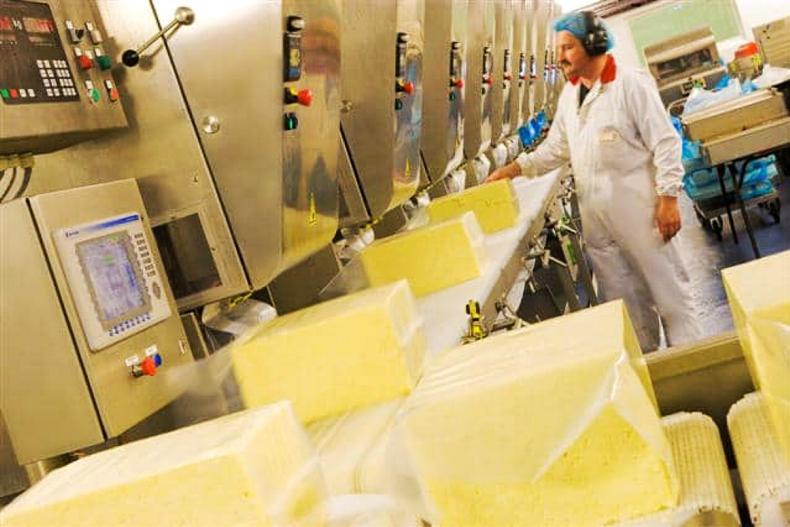
Cheese produced by Carbery.
Carbery, which does not break out the performance of its business divisions, said its dairy business (52% of turnover) performed in line with expectations, despite challenging weather conditions and expected fall in milk prices.
Its nutrition business performed strongly in 2018 according to the company, with volumes increasing year on year. Synergy, the group’s international taste and flavours division, also performed well in 2018 across all regions. Carbery said its Synergy business has doubled in size over the last four years. Jason Hawkins, chief executive at Carbery Group, said the solid performance allowed the co-op to continue “to pay a leading milk price to shareholders, while also extending support payments for longer periods to support farmers through the severe weather conditions at the start of 2018.”
Looking to the future
In his outlook for dairy markets in 2019, Hawkins said that Carbery is well-positioned to grow and continue to deliver strong results, providing a competitive milk price to its shareholders.
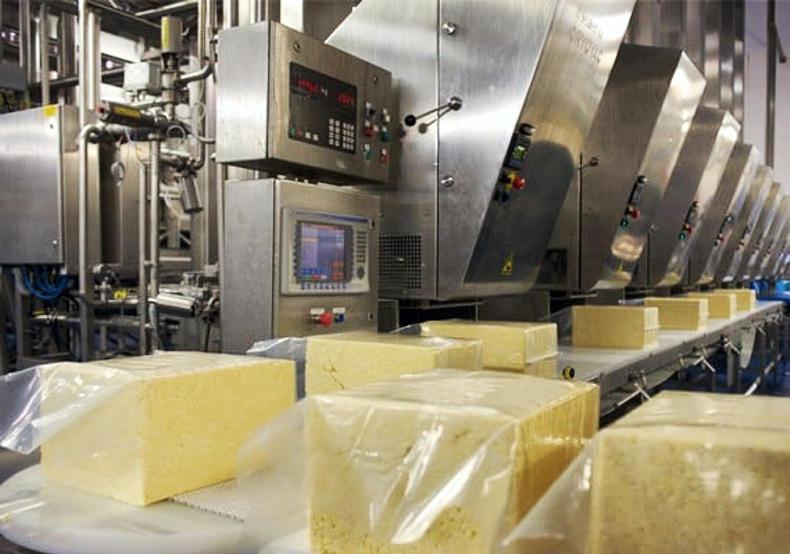
However, Hawkins said the market for selling is currently weak, despite China buying strongly in the last few months. He said demand in the EU, particularly in Germany, is modest and there is still an overhang of stocks in the UK.
Brexit and Cheese
Brexit is a real and serious risk for Carbery, particularly for its cheese business. Whether Brexit happens or not, Carbery’s dairy business is heavily dependent on one product for one market. Its dairy business is based around one cheese type – cheddar.
Carbery manufactures 25% of all of Ireland’s cheddar
Almost two-thirds (60%) of the 53,000t of cheese Carbery manufactures goes to the UK market. Furthermore, Carbery manufactures 25% of all of Ireland’s cheddar. Hawkins himself admits that even without Brexit, this is too large a volume for one market. Hence, the company plans to mitigate this risk and is diversifying into mozzarella. This might not be a bad idea given that most of the mozzarella in mainland Europe is not grass-fed. Could this be a real opportunity for Ireland? Carbery clearly believes there is potential. Mozzarella is a large growth market given that it is mainly used on pizzas, which is one of the fastest growing food products in the world, particularly in emerging markets in Asia, where cheese consumption is low currently.
Just over 100,000 cows across 1,220 farms from all over west Cork supply Carbery. This is a business that is delivering consistently for its farmers through its milk price. It is not going after scale, for scale’s sake, and it appears very clear that its role is to add value to its shareholders through the milk.
Volumes are now up 34% since the lifting of quotas
Despite Brexit, Carbery is a business on a solid financial footing. With this next wave of investment (€100m) Carbery expects to have enough processing capacity to see it to the year 2030 and beyond.
Given that it is a business with very low debt and generates €40m cash each year, on top of paying its members the leading milk prices in the country, the next wave of investment will be very manageable for the company.
A glance back at the last five years performance demonstrates this best.
Volumes are now up 34% since the lifting of quotas (2014).
More significantly, profits have more than doubled in the same period of time, all the while paying first in class milk prices to its farmers.
So what is the ingredient that has made Carbery successful and able to consistently deliver for its farmers? Is it the product, structure, strategy, management or culture? Probably a combination of all of the above. But perhaps more importantly, farmers in other co-ops must ask their boards how it can be replicated.
In a year where Carbery celebrated its 50th year in production, the west Cork based co-op, reported a solid financial performance for 2018. Operating profits were up 4.5% to €32.4m while turnover increased 1.5% to €423.5m. Volume growth offset weaker dairy prices during the year. Operating margins were a healthy 7.7%, while earnings (EBITDA) were up 5.2% to €43.9m. Profit before tax amounted to €25.1m, which is up €1m (+4%) on the prior year.

Carbery chief executive Jason Hawkins.
These results are after Carbery declared a €4.3m bonus based on 2018 milk supply, which it set aside for a stability fund to be used to support future payments at times of milk price volatility. The balance sheet has a total net asset value of €243.9m, which is up from €219.5m at the prior year end. Total fixed assets are valued at €158m with intangibles such as goodwill valued at €40m (25%), which mainly arise in the Synergy business.
Milk supply, processed at its Ballineen facility, increased 5% in 2018 to 536m litres.
While net debt at year end was up €17.4m to €30.1m, it is still less than 0.69 times earnings. This suggests there is plenty of borrowing capacity in this business.
While the company remains open to buying new businesses there are no hints of Carbery making any major acquisitions in the near future.
Last year the group acquired 100% of Italian flavours company, Janousek, for a price estimated between €7m to €10m. Carbery invested €18m across its global operations last year bringing total investment in the business over the last five years to €90m. And it is not finished yet.
Carbery is about to embark on a significant period of expansion with plans to invest €100m over the next two years. This includes the construction of a new mozzarella cheese manufacturing facility at the Ballineen site at a total cost of €78m. This will allow Carbery to diversify from its cheddar production base and into an expanded range of new cheeses.

Cheese produced by Carbery.
Carbery, which does not break out the performance of its business divisions, said its dairy business (52% of turnover) performed in line with expectations, despite challenging weather conditions and expected fall in milk prices.
Its nutrition business performed strongly in 2018 according to the company, with volumes increasing year on year. Synergy, the group’s international taste and flavours division, also performed well in 2018 across all regions. Carbery said its Synergy business has doubled in size over the last four years. Jason Hawkins, chief executive at Carbery Group, said the solid performance allowed the co-op to continue “to pay a leading milk price to shareholders, while also extending support payments for longer periods to support farmers through the severe weather conditions at the start of 2018.”
Looking to the future
In his outlook for dairy markets in 2019, Hawkins said that Carbery is well-positioned to grow and continue to deliver strong results, providing a competitive milk price to its shareholders.

However, Hawkins said the market for selling is currently weak, despite China buying strongly in the last few months. He said demand in the EU, particularly in Germany, is modest and there is still an overhang of stocks in the UK.
Brexit and Cheese
Brexit is a real and serious risk for Carbery, particularly for its cheese business. Whether Brexit happens or not, Carbery’s dairy business is heavily dependent on one product for one market. Its dairy business is based around one cheese type – cheddar.
Carbery manufactures 25% of all of Ireland’s cheddar
Almost two-thirds (60%) of the 53,000t of cheese Carbery manufactures goes to the UK market. Furthermore, Carbery manufactures 25% of all of Ireland’s cheddar. Hawkins himself admits that even without Brexit, this is too large a volume for one market. Hence, the company plans to mitigate this risk and is diversifying into mozzarella. This might not be a bad idea given that most of the mozzarella in mainland Europe is not grass-fed. Could this be a real opportunity for Ireland? Carbery clearly believes there is potential. Mozzarella is a large growth market given that it is mainly used on pizzas, which is one of the fastest growing food products in the world, particularly in emerging markets in Asia, where cheese consumption is low currently.
Just over 100,000 cows across 1,220 farms from all over west Cork supply Carbery. This is a business that is delivering consistently for its farmers through its milk price. It is not going after scale, for scale’s sake, and it appears very clear that its role is to add value to its shareholders through the milk.
Volumes are now up 34% since the lifting of quotas
Despite Brexit, Carbery is a business on a solid financial footing. With this next wave of investment (€100m) Carbery expects to have enough processing capacity to see it to the year 2030 and beyond.
Given that it is a business with very low debt and generates €40m cash each year, on top of paying its members the leading milk prices in the country, the next wave of investment will be very manageable for the company.
A glance back at the last five years performance demonstrates this best.
Volumes are now up 34% since the lifting of quotas (2014).
More significantly, profits have more than doubled in the same period of time, all the while paying first in class milk prices to its farmers.
So what is the ingredient that has made Carbery successful and able to consistently deliver for its farmers? Is it the product, structure, strategy, management or culture? Probably a combination of all of the above. But perhaps more importantly, farmers in other co-ops must ask their boards how it can be replicated.









 This is a subscriber-only article
This is a subscriber-only article




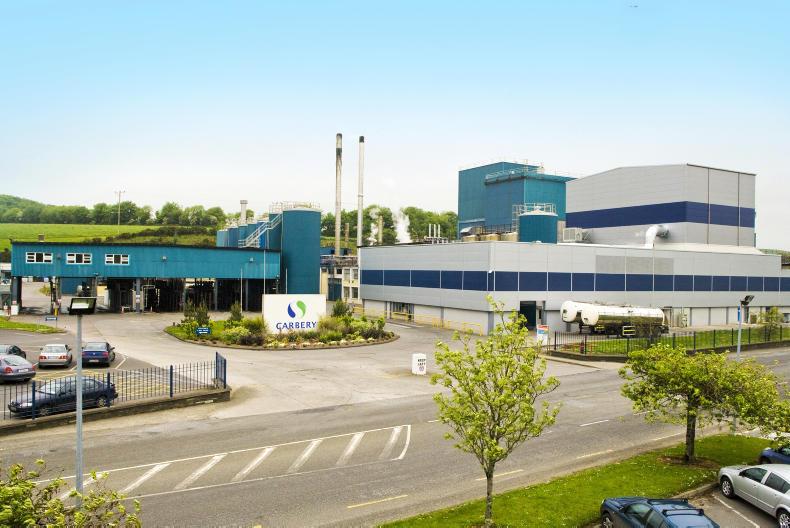


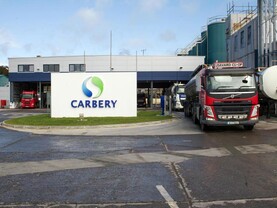

SHARING OPTIONS: